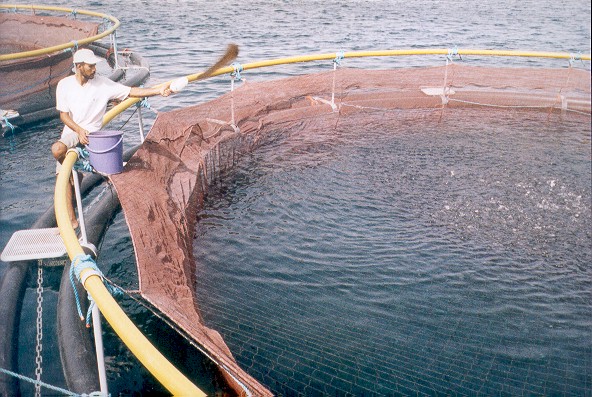Our Story
Beginnings:
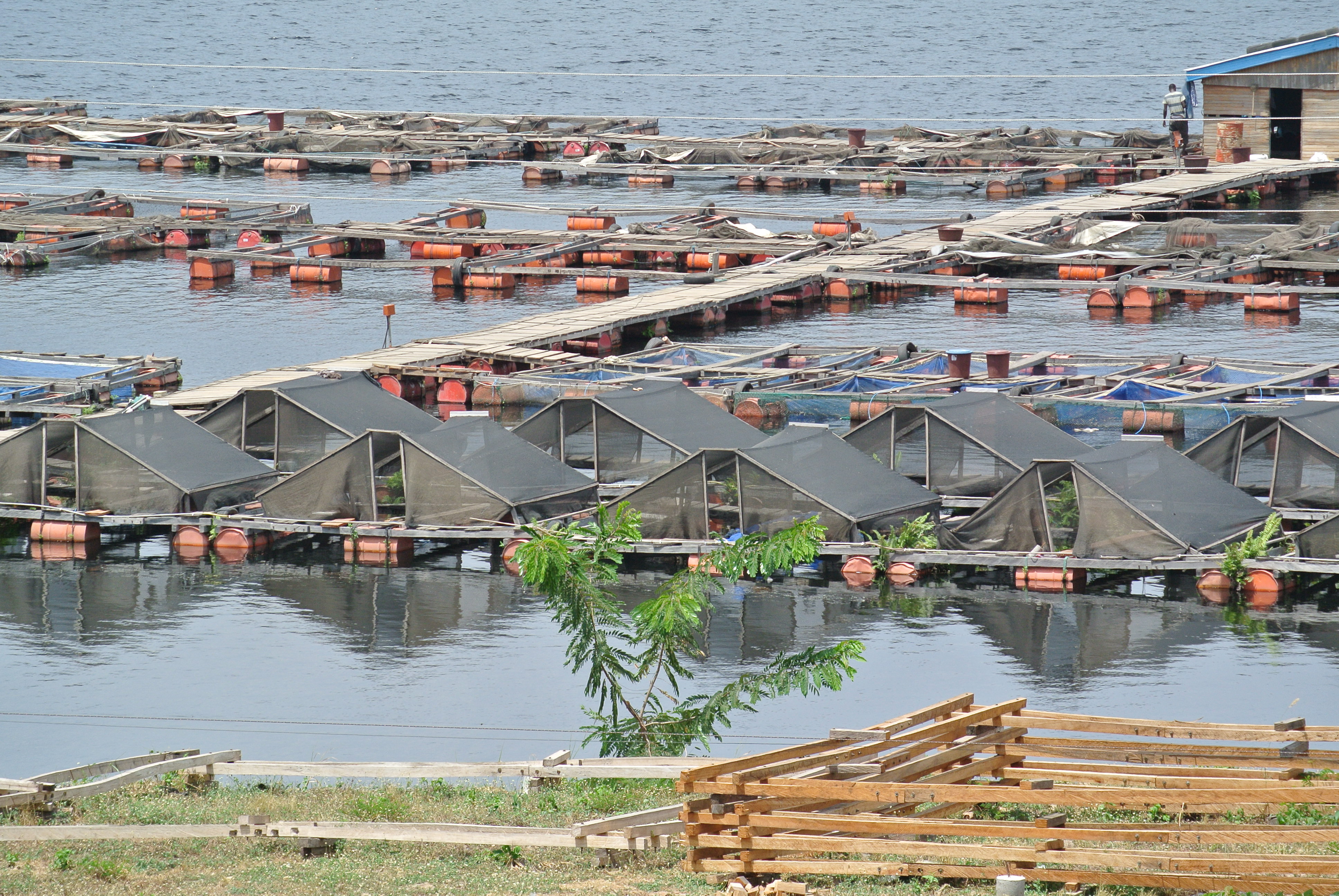
1971 saw Prof Ron Roberts establishing a
Unit of Aquatic Pathobiology, funded by the Nuffield Foundation, to carry out research
and training in fish diseases. In 1980, the Unit of Aquatic Pathology formally became the
Institute
of Aquaculture (IoA) of the University of Stirling. In 2021, along with the aquaculture industry in Scotland, it celebrated its 50th
anniversary, having grown to become the leading Aquaculture Centre and one of the largest concentrations of expertise dedicated to
aquaculture in the world. The Institute works with fish farmers, governments, regulatory bodies, industry, pharmaceutical companies,
supply chains, veterinarians, and other academic institutions to tackle global problems of food security, hunger, and sustainability
through aquaculture.
Global Reach:
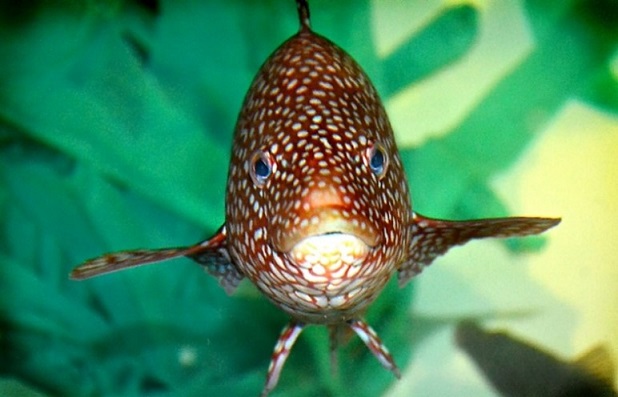
With an early focus on Scottish and UK trout and salmon aquaculture, IoA soon widened its scope internationally. Long-term support
from ODA, (now DFID) FAO, British Council, Worldfish and other agencies enabled IoA to have a powerful input to global aquaculture
development. Research on aquaculture developments in tropical regions began early on and was strengthened in 1979 in partnership with ODA,
resulting in the construction of tropical research facilities in the Institute and facilitating, projects in Israel, Kenya, Bangladesh,
Mexico, and many more. In 1978 a large tropical aquarium was opened to maintain a tilapia reference collection, together with broodstock, to produce
large quantities of fish fry and prawn larvae for research using finely controlled experimental tank systems. In 1995 the
Institute was awarded the
Queen's Award for Export Achievement.
Partnership with Aquaculture Industry
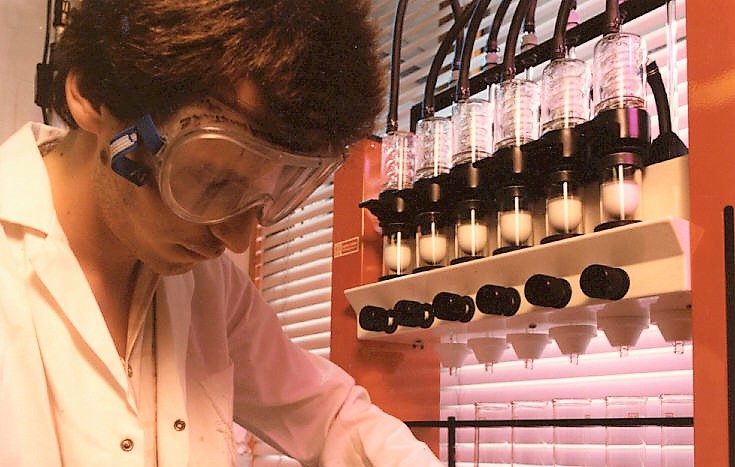
IoA has maintained a close working relationship with industry since its inception. The Institute's research and business hub
offers consultancy and expertise in developing technologies and practices tailored to the industry, utilising its staff, facilities and
networks. With commercial scale freshwater research facilities at Howietown and Buckieburn, and seawater at the Marine Environmental
Research Laboratory at Machrihanish, the Institute has been able to pioneer production of new species such as cod, halibut and wrasse,
as well as triploid salmon and genetically selected broodstock of salmonids and tilapias.
Research Excellence:
IoA research has generated thousands of scientific publications, innumerable books and specialist reports.
This high quality, high impact work has been recognised in successive Research Quality Assessments (RAE and REF) - with IoA consistently
ranked very highly in the UK agriculture unit of assessment and winning the Queens Anniversary Prize for Research Excellence in 2019.
Teaching and Training:
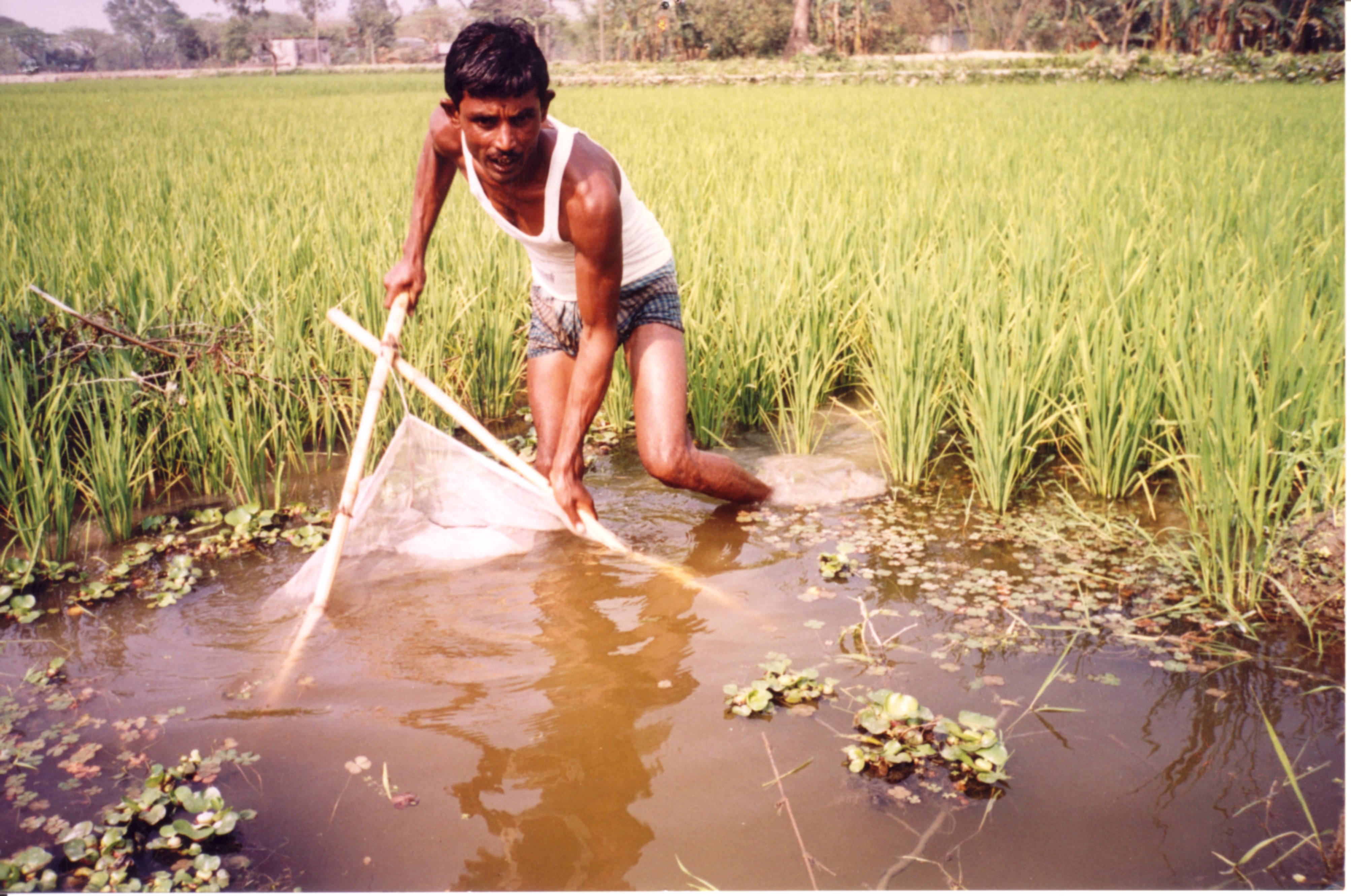
IoA is a major international postgraduate Institute covering tropical and temperate finfish and shellfish in extensive and intensive
culture. Doctoral training is a key part of the Institute's research portfolio; The Institute also offers an MSc degree and Postgraduate
Diploma in Sustainable Aquaculture, and the unique MSc in Aquatic Veterinary Studies and Aquatic Pathobiology. Stirling graduates
are to be found in senior roles throughout world aquaculture. Industry, producer, and regulator-focused short
courses at all levels have been a key feature since 1972 and continue to provide a targeted, upskilling CPD resource for aquaculturalists
and veterinarians. IoA also offers specialist
in-situ training and extension in many different countries through courses and workshops,
resulting in long-term relationships around the globe.

 1971 saw Prof Ron Roberts establishing a Unit of Aquatic Pathobiology, funded by the Nuffield Foundation, to carry out research
and training in fish diseases. In 1980, the Unit of Aquatic Pathology formally became the Institute
of Aquaculture (IoA) of the University of Stirling. In 2021, along with the aquaculture industry in Scotland, it celebrated its 50th
anniversary, having grown to become the leading Aquaculture Centre and one of the largest concentrations of expertise dedicated to
aquaculture in the world. The Institute works with fish farmers, governments, regulatory bodies, industry, pharmaceutical companies,
supply chains, veterinarians, and other academic institutions to tackle global problems of food security, hunger, and sustainability
through aquaculture.
1971 saw Prof Ron Roberts establishing a Unit of Aquatic Pathobiology, funded by the Nuffield Foundation, to carry out research
and training in fish diseases. In 1980, the Unit of Aquatic Pathology formally became the Institute
of Aquaculture (IoA) of the University of Stirling. In 2021, along with the aquaculture industry in Scotland, it celebrated its 50th
anniversary, having grown to become the leading Aquaculture Centre and one of the largest concentrations of expertise dedicated to
aquaculture in the world. The Institute works with fish farmers, governments, regulatory bodies, industry, pharmaceutical companies,
supply chains, veterinarians, and other academic institutions to tackle global problems of food security, hunger, and sustainability
through aquaculture.
 With an early focus on Scottish and UK trout and salmon aquaculture, IoA soon widened its scope internationally. Long-term support
from ODA, (now DFID) FAO, British Council, Worldfish and other agencies enabled IoA to have a powerful input to global aquaculture
development. Research on aquaculture developments in tropical regions began early on and was strengthened in 1979 in partnership with ODA,
resulting in the construction of tropical research facilities in the Institute and facilitating, projects in Israel, Kenya, Bangladesh,
Mexico, and many more. In 1978 a large tropical aquarium was opened to maintain a tilapia reference collection, together with broodstock, to produce
large quantities of fish fry and prawn larvae for research using finely controlled experimental tank systems. In 1995 the
Institute was awarded the Queen's Award for Export Achievement.
With an early focus on Scottish and UK trout and salmon aquaculture, IoA soon widened its scope internationally. Long-term support
from ODA, (now DFID) FAO, British Council, Worldfish and other agencies enabled IoA to have a powerful input to global aquaculture
development. Research on aquaculture developments in tropical regions began early on and was strengthened in 1979 in partnership with ODA,
resulting in the construction of tropical research facilities in the Institute and facilitating, projects in Israel, Kenya, Bangladesh,
Mexico, and many more. In 1978 a large tropical aquarium was opened to maintain a tilapia reference collection, together with broodstock, to produce
large quantities of fish fry and prawn larvae for research using finely controlled experimental tank systems. In 1995 the
Institute was awarded the Queen's Award for Export Achievement.
 IoA has maintained a close working relationship with industry since its inception. The Institute's research and business hub
offers consultancy and expertise in developing technologies and practices tailored to the industry, utilising its staff, facilities and
networks. With commercial scale freshwater research facilities at Howietown and Buckieburn, and seawater at the Marine Environmental
Research Laboratory at Machrihanish, the Institute has been able to pioneer production of new species such as cod, halibut and wrasse,
as well as triploid salmon and genetically selected broodstock of salmonids and tilapias.
IoA has maintained a close working relationship with industry since its inception. The Institute's research and business hub
offers consultancy and expertise in developing technologies and practices tailored to the industry, utilising its staff, facilities and
networks. With commercial scale freshwater research facilities at Howietown and Buckieburn, and seawater at the Marine Environmental
Research Laboratory at Machrihanish, the Institute has been able to pioneer production of new species such as cod, halibut and wrasse,
as well as triploid salmon and genetically selected broodstock of salmonids and tilapias.
 IoA is a major international postgraduate Institute covering tropical and temperate finfish and shellfish in extensive and intensive
culture. Doctoral training is a key part of the Institute's research portfolio; The Institute also offers an MSc degree and Postgraduate
Diploma in Sustainable Aquaculture, and the unique MSc in Aquatic Veterinary Studies and Aquatic Pathobiology. Stirling graduates
are to be found in senior roles throughout world aquaculture. Industry, producer, and regulator-focused short
courses at all levels have been a key feature since 1972 and continue to provide a targeted, upskilling CPD resource for aquaculturalists
and veterinarians. IoA also offers specialist in-situ training and extension in many different countries through courses and workshops,
resulting in long-term relationships around the globe.
IoA is a major international postgraduate Institute covering tropical and temperate finfish and shellfish in extensive and intensive
culture. Doctoral training is a key part of the Institute's research portfolio; The Institute also offers an MSc degree and Postgraduate
Diploma in Sustainable Aquaculture, and the unique MSc in Aquatic Veterinary Studies and Aquatic Pathobiology. Stirling graduates
are to be found in senior roles throughout world aquaculture. Industry, producer, and regulator-focused short
courses at all levels have been a key feature since 1972 and continue to provide a targeted, upskilling CPD resource for aquaculturalists
and veterinarians. IoA also offers specialist in-situ training and extension in many different countries through courses and workshops,
resulting in long-term relationships around the globe.
